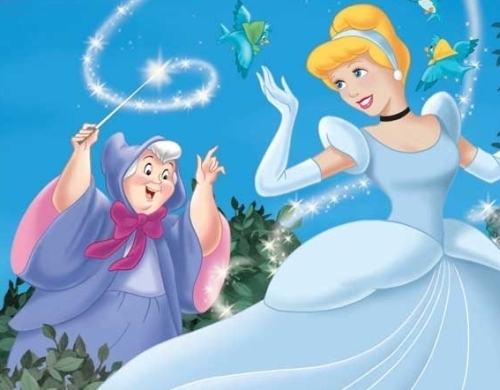
“Parents, let’s admit it,” writes film critic Rebecca Cusey for SixSeeds.tv. “Some of us don’t quite know how to handle magic in stories and movies. Maybe we don’t want our kids to be frightened by wicked witches that turn into dragons or by mean teachers that turn into Greek Furies. Maybe we want to answer their questions truthfully and magic seems like a cop-out. Or maybe we practice a faith that is deeply uncomfortable with magic. There’s no escaping it. Magic is everywhere in culture these days.”
But Cusey doesn’t advise parents to run from it, or to aggressively shield their kids. Instead, she suggests that magic in such movies as Harry Potter, The Princess and the Frog, Percy Jackson and the Olympians, and others, “we sell our kids short. I say, let them bippity boppity boo.”
She goes on: “We sell our children short by thinking they’ll somehow absorb paganism from magic in books and cinema. Kids know what is imagination and what is not. What little girl hasn’t longed to be transformed by Cinderella’s fairy godmothers, usually while she’s resenting doing chores? She knows, inside, it won’t happen. Children don’t really believe they can mix effective potions or use wands any more than they believe Spiderman is a real person or that toys come to life when our back is turned.”
And finally, Cusey quotes C. S. Lewis (who included quite a bit of magic in his own Narnia books) as an excellent guide to discernment on such matters:
“Those who say that children must not be frightened may mean two things. They may mean (1) that we must not do anything likely to give the child those haunting, disabling, pathological fears against which ordinary courage is helpless: in fact, phobias. His mind must, if possible, be kept clear of things he can’t bear to think of. Or they may mean (2) that we must try to keep out of his mind the knowledge that he is born into a world of death, violence, wounds, adventure, heroism and cowardice, good and evil. If they mean the first I agree with them: but not if they mean the second. The second would indeed be to give children a false impression and feed them on escapism in the bad sense. There is something ludicrous in the idea of so educating a generation which is born to the…atomic bomb. Since it is so likely that they will meet cruel enemies, let them at least have heard of brave knights and heroic courage. Otherwise you are making their destiny not brighter but darker.”
What do you think? Leave your comments below.








